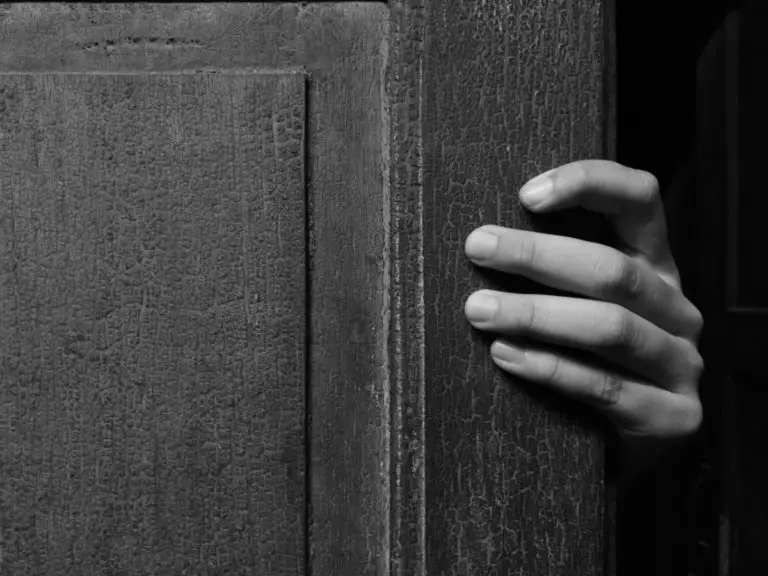Disclaimer: Below is a review with light spoilers of the author’s experience during Candle House Collective’s latest remote mobile experience, Moonlight Serenade.
What do you think of when you think of moonlight? Moonlight can be comforting – a beacon of hope and reassurance in the night. It can be romantic – a symbol of dancing and champagne beneath the stars. It can be mysterious – a wistful glimmer surrounded by darkness. It can be frightening – a reminder that we’re all vulnerable when we’re alone and in the dark. Moonlight is many things, often at the same time, something that can also be said of the new alternate-reality experience to which it lends its name.
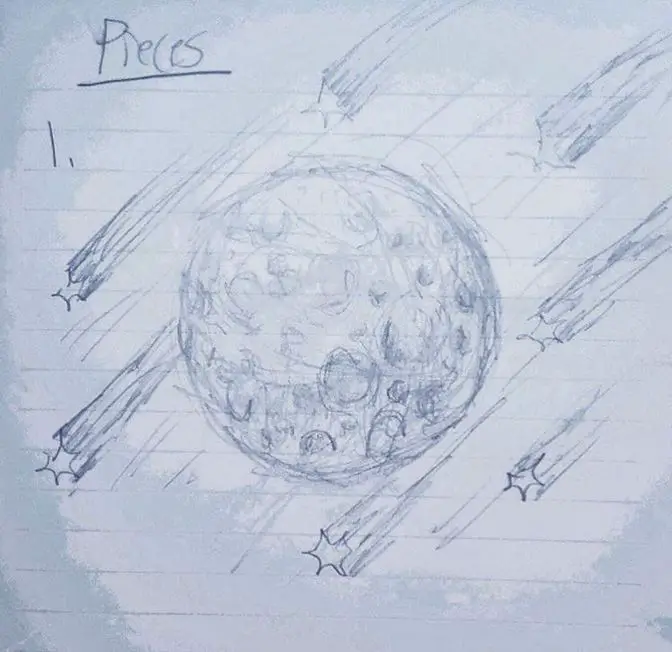
A New Reality is a Phone Call Away
Billed as “a bedtime story,” moonlight serenade is the third remote, call-based alternate-reality experience (ARX) produced by Candle House Collective, and their second to be entirely contained within a three-day period. This approach, which they first used in their 2018 experience, Crossed Wires, allows for the escape into fantasy that’s integral for an ARX’s success without placing too high a demand on the participant’s time – making this an experience that’s easily accessible to nearly anybody…even those immersive fans who “don’t do ARXs.”
moonlight serenade is arguably Candle House Collective’s most complex concept to date. Exploring some deeply emotional themes through a broad array of connections, participants can anticipate three fairly lengthy calls on each day of their experience, bolstered by occasional text messages. But don’t let the fact that this is over the phone mislead you. Like any good piece of immersive theater, moonlight serenade requires its participants to be fully engaged, something that you may find difficult to do, depending on where you are during your calls. It’s recommended that they be received in private – a good suggestion, as all of them will find you opening up about subjects that others within earshot may find strange, provocative, or even worrying.
If Candle House Collective has any interest in simpler, more cursory experiences, they have yet to demonstrate it. Their third experience is much different in concept and execution than their earlier ones, but it shares their emotional complexity. This show has things to say on a wide array of themes, from the need for human connection and the trauma of losing it to the ridiculousness of modern government to the subjective nature of truth to the defining qualities of what we call home. Almost more impressively, the show works because creator Evan Neiden, the mind behind all of Candle House Collective’s experiences, has instilled these themes within a narrative that is as far reaching physically as it is thematically. It stokes our imagination while it questions much about our reality.

Much to Say and a Surprising Way to Say It
moonlight serenade begins with your purchase of a star. It’s an unusual transaction, to say the least, but it opens the door to an unexpectedly wide array of conversations that you’ll be engaging in over the next few days. Even the seemingly more straightforward ones take turns into some deeply emotional or philosophical directions. The Operator handling your transaction, despite representing a company in the business of selling stars, seems more interested in the spaces between them, the vastness and emptiness of the sky above. He asks if you’ve ever felt lonely, a theme that stands out early in the experience as it’s also at the center of your second call. That one’s from a highly upset young man named Zephyr who had been hoping to purchase your star because of the significance it held in a now-ended friendship. Zephyr’s pain is relatable. He’s alone and hurting and sees this star that’s even farther away than his lost friend as a way of once again feeling close to him. It reminds one of how most stars, brilliant as they are, are pretty isolated.
But if you’re thinking that moonlight serenade is a show about lost and lonely people looking for meaning in the night sky, it’s more than that. Neiden has given his third ARX an unexpected dose of whimsy and playfulness. It turns out that your star, remarkable as it sounds, has people living on it. People like June Lebast, who expects you, as its new chairman, to do something about the wombat infestation in her home.

Your conversation with June is a playful highlight, and there are more calls along those lines. Yet these discussions, and your new role of what amounts to your star’s ruler, allow the experience to explore themes that speak just as much to our human experience as its other more emotional narratives. You have a key role in the star’s government…and the government is a mess. Decisions are being made with no regard for the human (or animal) cost. Competing sides bicker and talk over each other so no one gets heard. Council meetings, where life-changing decisions are made, are blown through in a matter of minutes. It’s part Jonathan Swift and part Monty Python, and uncomfortably familiar to anyone who follows our current legislative process.
As far-ranging as the conversations get throughout moonlight serenade, they do ultimately tie together. You’ll speak with Zephyr again, as well as his estranged friend George, and you’ll find that it’s their relationship with the star that forms the core of moonlight serenade. Neiden makes some of his most powerful statements on truth, imagination, ownership, and returning home through Zephyr and George. Both young men remember their relationship and falling out differently, and while you get to what eventually feels like the truth, there’s nothing objective you can grab onto to back it up. So, can we really know for sure? And so much is riding on it – seemingly the health of the star and lives of the people living on it. One has to wonder why so much is at stake. Stars are formed over billions of years by countless numbers of atoms slowly binding together at high densities. It’s a random process that has nothing to do with Zephyr, George, or you, yet it becomes obvious that all three seem to be claiming ownership over this star. It may take a while for the ridiculousness of the scenario to become apparent, but it’s clear as starlight if you take a step back and think about it; while all of you are claiming the star as yours, the ones who are suffering are the people living on it.
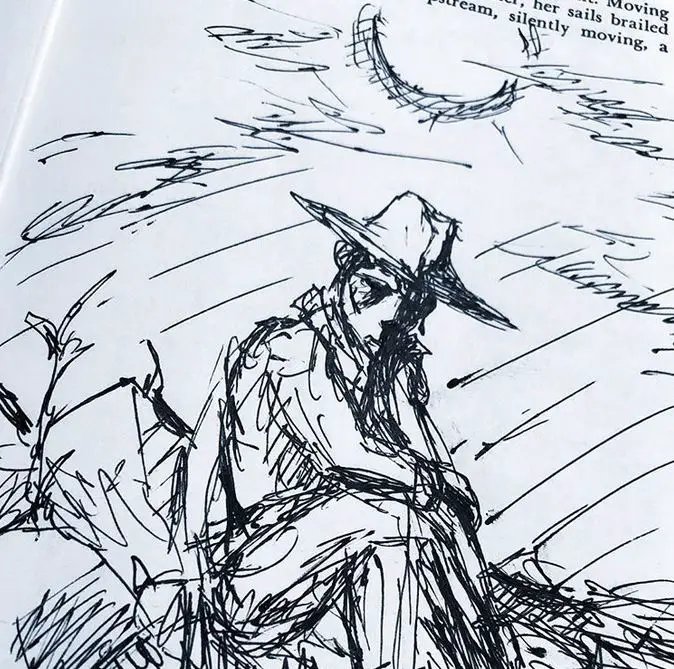
A Story Rich in Symbolism
The sky and the stars within it are the perfect metaphor for the uncertainty of truth. The night sky changes depending on where you’re looking at it, when you’re looking at it, or how you’re looking at it. Stars are hundreds, even thousands, of light years away, meaning it’s entirely possible that the stars we see each night burned out ages ago. Just because we believe in something doesn’t mean it’s really there.
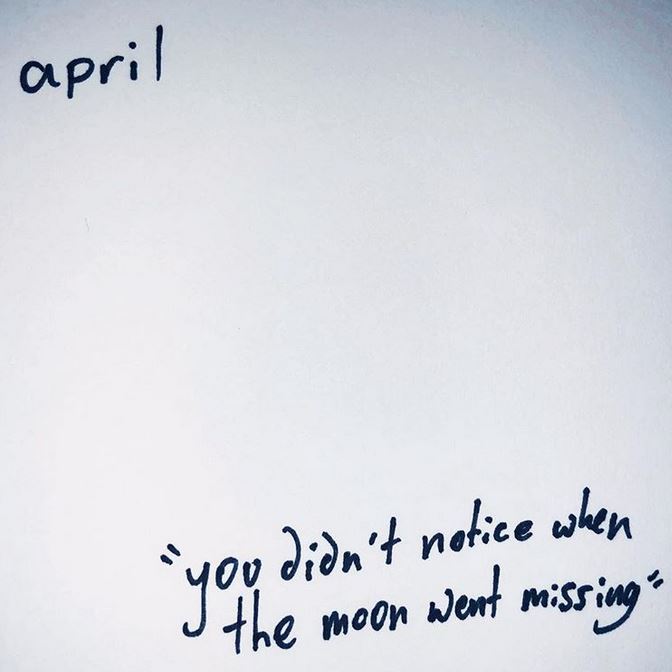
moonlight serenade is rich in this sort of symbolism, much of which becomes clear after the experience’s tragic final twist. Yet one of the best uses of symbolism is right at the beginning, when Zephyr discusses the infinite possibility of space. He uses it to set the stage for the discovery of your star’s unlikely qualities, but it also serves as a subtle reminder about the experience you’re about to undertake – anything seems possible based on your decisions here. This is an experience where your choices do matter, and while all paths may lead to the same ending, the journey there can be drastically different depending on what you decide.
Much credit here has to be given to Neiden, who over less than two years has proven remarkably adept at creating layered, nuanced, emotional experiences that continue to provoke thought and discussion days after they’ve finished. The notion of what home means to us is generously explored, and whether it can ever be as pure as it is when you’re a child becomes a dominant theme at the end. Yet, looking back days later, I began to realize how often it was alluded to. It was there when Zephyr and George spoke of the star, but the idea of home was also there in unlikely moments, like when June explains how to relocate a community of wombats. The questions that moonlight serenade ponders are woven throughout the narrative in ways that always feel organic and natural, an impressive feat considering their complexity.

Voices From the Stars
An experience that consists entirely of conversations lives or dies on the strength of its performances, and the ones here are often phenomenal. Participants who have experienced Candle House Collective’s earlier work may recognize a few return voices. Neiden returns to the role of The Operator that he first originated in Crossed Wires. Once again, he provides crucial context, offers suggestions and ultimately lays the foundation for what will take place. As a performance, it’s an understated one, but don’t dismiss its importance. This is a show that demands you feel for its characters, and at the end, you may be sad, angry, confused, or shaken. The Operator may not leave you with the answers you might be hoping for, but Neiden’s warm, comforting tone, and poetic delivery help to guide you out of whatever emotional pit you may have fallen into.
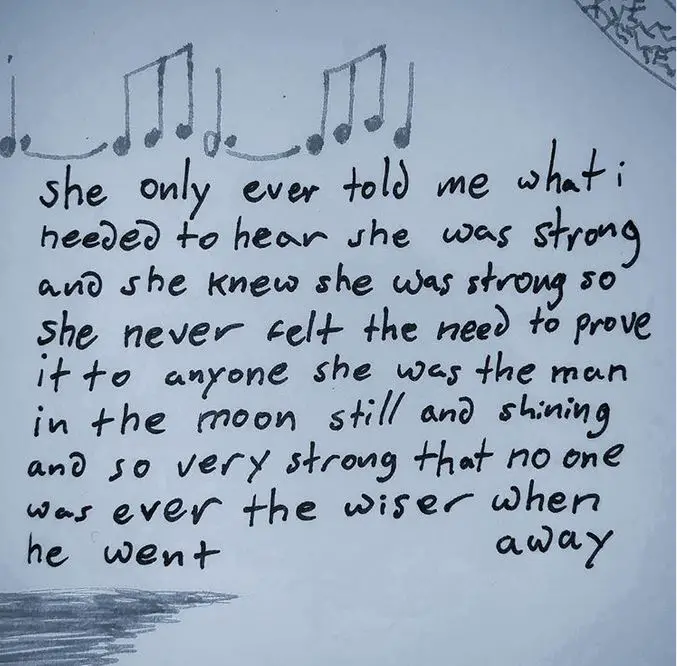
Also returning is Jonathan Connolly as Zephyr. Connolly broke hearts in Crossed Wires as a young death row inmate facing his last 24 hours of life. His plight here may not be quite so dire, but it’s no less tragic. Zephyr is a demanding, affecting role that in the course of a single conversation can touch on a number of powerful emotions, from angry and threatening, to tragic and dark, to gently humorous and accepting. It’s a powerful performance.
Making equally remarkable impressions were Rae Covey and Riley Nelson, but for very different reasons. Covey, as June, is a fast-talking firecracker while Nelson’s character, Brigit Burrow, requires channeling some truly horrific pain. Nelson punctuates this with moments of desperate lightness and delicate humor that’ll ring true to anyone who’s spent time with someone dealing with loss. The result is a near sixty-minute conversation that you’ll likely carry with you for days after it ends.
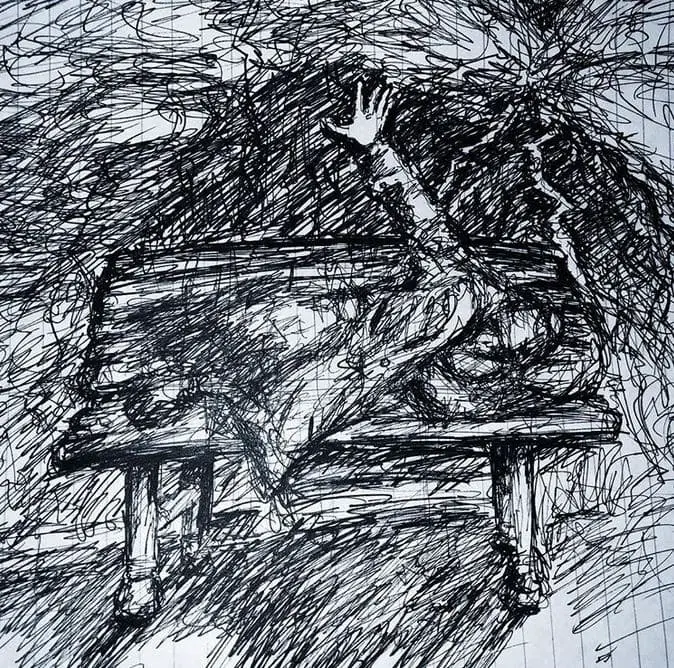
Back to Earth
Yet, moonlight serenade, as strong as it is, does strain a bit at the limitations of its format, even as it makes the absolute most of its strengths. With all connections taking place over cell phones, technical issues can and will occasionally come up. Cell phone connections can be undependable and dropped calls do happen. They’re a reality of the format and the performers here handle them well when they do happen, but they still take you out of the moment, however briefly. In addition, a call with your star’s governing council involves multiple participants and is obviously conducted over a speakerphone, which resulted in a notably less clear and frequently spotty connection.
Finally, a major plot point, which arrives via a password protected document and ultimately makes for an amazing revelation, seems also capable of distracting from the experience at a pivotal time. Obtaining the password, which relies on remembering a word association you had made in one of the prior day’s calls, proved frustratingly difficult for me, resulting in me not giving my full attention to the call as I tried various passwords. Should you remember your association quickly, this will likely be a non-issue, but for participants who don’t, you may find yourself missing out on a truly beautiful and sad moment.

The Final Word
Those two words could very well be used to describe moonlight serenade as a whole – it’s beautiful and it’s more than a little sad. Neiden’s smart, subtle and frequently poetic writing along with the strong directorial talents of John Ertman and John Connolly, and some truly remarkable work by the cast all but ensure that you will care deeply about these characters, and at the end, you’ll want to know that they’re okay. But moonlight serenade isn’t an experience that’s interested in easy, clear resolutions. Your final connection with The Operator makes that clear – he doesn’t have answers. What he does have is a glimpse at three very different potential futures for Zephyr and some final thoughts. It’s enough to tie everything you’ve just experienced together in a way that lends itself to further contemplation after it’s done.
After the creative success of Crossed Wires, an anthology experience, Neiden and Candle House Collective must be applauded for going a much different direction here and trying something that’s considerably more ambitious. For all of the fantastic elements that we discover throughout moonlight serenade, it still manages to achieve the emotional purity that we’ve seen this team is capable of producing simply by asking its audience to stop what they’re doing and talk to another person. It demonstrates the power of human connection while also telling a story that explores our need for it. It asks often uncomfortable questions about truth, ownership and government, and leads us to question what we would do to return to the acceptance and innocence of home. moonlight serenade is a powerful reminder of where we came from, where we’re going and how the ways we react to both of those things are often what drive us apart as people. It’s a trip to the stars that reminds you that what really matters are those who are making the trip with us.
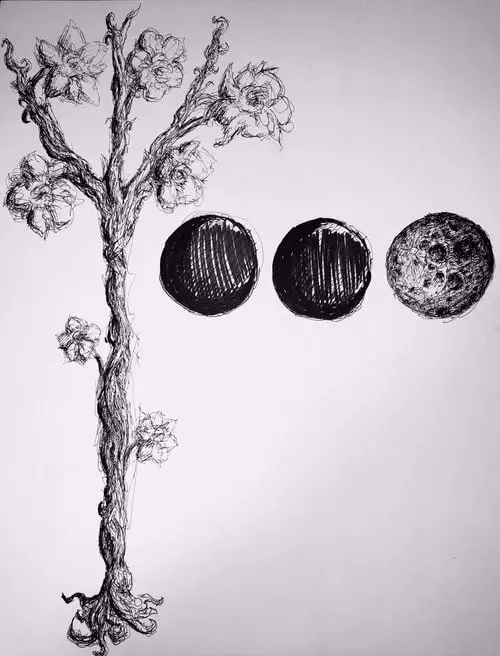
moonlight serenade is created by Evan Neiden. Directed by Jonathan Connolly, John Ertman, and Evan Neiden. Featuring the voices of Evan Neiden, Jonathan Connolly, Rae Covey, Jack Drummond, Alessandra Hernández, Daniel Hendon, Riley Nelson, and Leo Merrick. Visual art by Daniel Hendon.
Find out more about Candle House Collective on their website or Instagram. Keep checking our Event Guide for more ARX and immersive shows throughout the year.



